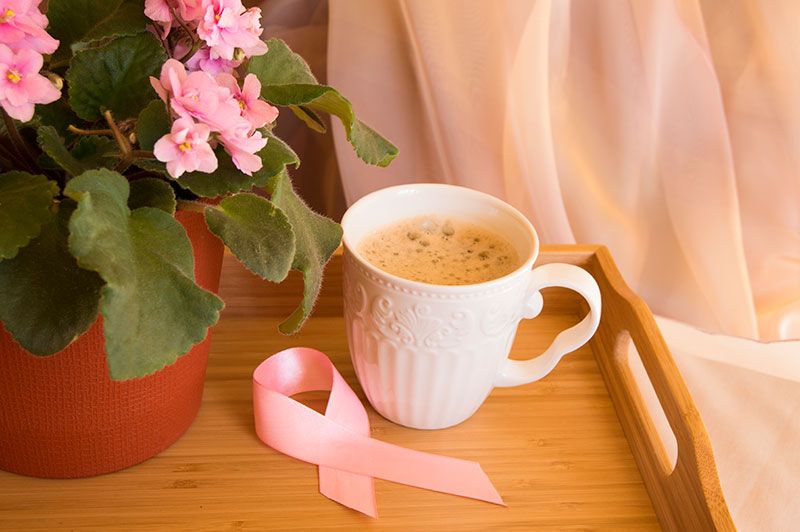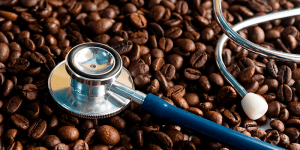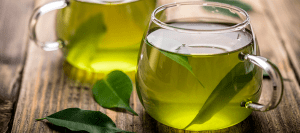El café y el consumo de cafeína y el riesgo de cáncer de mama
27-04-2017
Esta revisión sistemática y meta-análisis se realizó con el objetivo de resumir la evidencia con respecto a estudios que avalúan la asociación entre el consumo de café y cafeína, y el riesgo de padecer cáncer de mama. Para la búsqueda se incluyó la base de datos PubMed y las referencias de los artículos obtenidos. Se determinó la homogeneidad de los resultados y se utilizó el modelo de efectos randomizados al encontrar heterogeneidad. Se exploró la relación dosis-respuesta mediante cubic spline model y meta-regresión multivariada de efectos randomizados. Se incluyeron 37 estudios en el meta-análisis. No se encontró una asociación significativa entre el riesgo de cáncer de mama y el consumo de café (RR=0.97, P=0.09), café descafeinado (RR=0.98, P=0.55) y cafeína (RR=0.99, P=0.73), respectivamente. Tampoco se observó una asociación significativa después de combinar café y cafeína (RR=0.97, P=0.09). Sin embargo, una asociación inversa entre el consumo conjunto de café y cafeína y el riesgo de cáncer de seno para mujeres postmenopáusicas (RR=0.94, P=0.02) fue observada. También, una asociación fuerte y significativa entre el consumo de café y el riesgo de cáncer de seno fue encontrada para portadores de la mutación BRCA1 (RR=0,69, P<0,01). Una relación linear de dosis-respuesta fue encontrada para el riesgo de cáncer de mama asociando el consumo de café/cafeína: el riesgo de cáncer de seno decreció en 2% (P=0,05) por cada incremento en dos tazas al día de consumo de café/cafeína, y 1%(P0.52) por cada incremento de 200 mg/día en consumo de cafeína, respectivamente. Se concluye que el consumo de café /cafeína podría estar débilmente relacionado con el riesgo de cáncer para mujeres posmenopáusicas, y la asociación entre portadores de la mutación BRCA1 merece mayor investigación.
Jiang W, Wu Y, Jiang X. Coffee and caffeine intake and breast cancer risk: An updated dose–response meta-analysis of 37 published studies. Gynecologic Oncology 129 (2013) 620–629
[1] American Cancer Society. Cancer Facts and Figures 2012. New York (NY): American Cancer Society; 2012.
[2] International Coffee Organization, accessed on 1/6/2013.
[3] Stocks P. Cancer mortality in relation to national consumption of cigarettes, solid fuel, tea and coffee. Br J Cancer 1970;24:215–25.
[4] Norat T, Chan D, Lau T, Vieira R, Thompson T. WCRF/AICR Systematic Literature Review Continuous Update Report. The Associations Between Food, Nutrition and Physical Activity and the Risk of Breast Cancer; 2008.
[5] Tang N, Zhou B, Wang B, Yu R. Coffee consumption and risk of breast cancer: a metaanalysis.Am J Obstet Gynecol 2009;200:290 e291 [299].
[6] Ishitani K, Lin J, Manson JE, Buring JE, Zhang SM. Caffeine consumption and the risk of breast cancer in a large prospective cohort of women. Arch Intern Med 2008;168:2022–31.
[7] Larsson SC, Bergkvist L, Wolk A. Coffee and black tea consumption and risk of breast cancer by estrogen and progesterone receptor status in a Swedish cohort. Cancer Causes Control 2009;20:2039–44.
[8] Wilson KM, Mucci LA, Cho E, Hunter DJ, Chen WY, Willett WC. Dietary acrylamide intake and risk of premenopausal breast cancer. Am J Epidemiol 2009;169: 954–61.
[9] Bhoo Pathy N, Peeters P, van Gils C, Beulens JW, van der Graaf Y, Bueno-de-Mesquita B, et al. Coffee and tea intake and risk of breast cancer. Breast Cancer Res Treat 2010;121:461–7.
[10] Boggs DA, Palmer JR, Stampfer MJ, Spiegelman D, Adams-Campbell LL, Rosenberg L. Tea and coffee intake in relation to risk of breast cancer in the Black Women’s Health Study. Cancer Causes Control 2010;21:1941–8.
[11] Nilsson LM, Johansson I, Lenner P, Lindahl B, Van Guelpen B. Consumption of filtered and boiled coffee and the risk of incident cancer: a prospective cohort study. Cancer Causes Control 2010;21:1533–44.
[12] Fagherazzi G, Touillaud MS, Boutron-Ruault MC, Clavel-Chapelon F, Romieu I. No association between coffee, tea or caffeine consumption and breast cancer risk in a prospective cohort study. Public Health Nutr 2011;14:1315–20.
[13] Gierach GL, Freedman ND, Andaya A, Hollenbeck AR, Park Y, Schatzkin A, et al. Coffee intake and breast cancer risk in the NIH-AARP diet and health study cohort. Int J Cancer 2012;131:452–60.
[14] Bissonauth V, Shatenstein B, Fafard E, Maugard C, Robidoux A, Narod S, et al. Risk of breast cancer among French–Canadian women, noncarriers of more frequent BRCA1/2 mutations and cosumption of total energy, coffee, and alcohol. Breast
J 2009;15(Suppl. 1):S63–71.
[15] Li J, Seibold P, Chang-Claude J, Flesch-Janys D, Liu J, Czene K, et al. Coffee consumption modifies risk of estrogen-receptor negative breast cancer. Breast Cancer
Res 2011;13:R49.
[16] Snowdon DA, Phillips RL. Coffee consumption and risk of fatal cancers. Am J Public Health 1984;74:820–3.
[17] Katsouyanni K, Trichopoulos D, Boyle P, Xirouchaki E, Trichopoulou A, Lisseos B, et al. Diet and breast cancer: a case–control study in Greece. Int J Cancer 1986;38:815–20.
[18] Schairer C, Brinton LA, Hoover RN. Methylxanthines and breast cancer. Int J Cancer 1987;40:469–73.
[19] McLaughlin CC, Mahoney MC, Nasca PC, Metzger BB, Baptiste MS, Field NA. Breast cancer and methylxanthine consumption. Cancer Causes Control 1992;3:175–8.
[20] Levi F, La Vecchia C, Gulie C, Negri E. Dietary factors and breast cancer risk in Vaud, Switzerland. Nutr Cancer 1993;19:327–35.
[21] Mannisto S, Pietinen P, Virtanen M, Kataja V, Uusitupa M. Diet and the risk of breast cancer in a case-control study: does the threat of disease have an influence on recall bias? J Clin Epidemiol 1999;52:429–39.
[22] Gronwald J, Byrski T, Huzarski T, Cybulski C, Sun P, Tulman A, et al. Influence of selected lifestyle factors on breast and ovarian cancer risk in BRCA1mutation carriers from Poland. Breast Cancer Res Treat 2006;95:105–9.
[23] Nkondjock A, Ghadirian P, Kotsopoulos J, Lubinski J, Lynch H, Kim-Sing C, et al. Coffee consumption and breast cancer risk among BRCA1 and BRCA2 mutation carriers. Int J Cancer 2006;118:103–7.
[24] Hirose K, Niwa Y, Wakai K, Matsuo K, Nakanishi T, Tajima K. Coffee consumption and the risk of endometrial cancer: evidence from a case–control study of female hormone-related cancers in Japan. Cancer Sci 2007;98:411–5.
[25] Kotsopoulos J, Ghadirian P, El-Sohemy A, Lynch HT, Snyder C, Daly M, et al. The CYP1A2 genotype modifies the association between coffee consumption and breast cancer risk among BRCA1 mutation carriers. Cancer Epidemiol Biomarkers Prev 2007;16:912–6.
[26] Larsson SC, Orsini N. Coffee consumption and risk of stroke: a dose–response meta-analysis of prospective studies. Am J Epidemiol 2011;174:993–1001.
[27] Higgins JP, Thompson SG, Deeks JJ, Altman DG. Measuring inconsistency in meta-analyses. BMJ 2003;327:557–60.
[28] Orsini N, Li R, Wolk A, Khudyakov P, Spiegelman D. Meta-analysis for linear and nonlinear dose–response relations: examples, an evaluation of approximations, and software. Am J Epidemiol 2012;175:66–73.
[29] Harrell Jr FE, Lee KL, Pollock BG. Regression models in clinical studies: determining relationships between predictors and response. J Natl Cancer Inst 1988;80: 1198–202.
[30] Jackson D,White IR, Thompson SG. Extending DerSimonian and Laird’smethodology to perform multivariate random effects meta-analyses. Stat Med 2010;29:1282–97.
[31] Lubin F, Ron E, Wax Y, Modan B. Coffee and methylxanthines and breast cancer: a case–control study. J Natl Cancer Inst 1985;74:569–73.
[32] Rosenberg L, Miller DR, Helmrich SP, Kaufman DW, Schottenfeld D, Stolley PD, et al. Breast cancer and the consumption of coffee. Am J Epidemiol 1985;122:391–9.
[33] Rohan TE, McMichael AJ. Methylxanthines and breast cancer. Int J Cancer 1988;41: 390–3.
[34] Ewertz M, Gill C. Dietary factors and breast-cancer risk in Denmark. Int J Cancer 1990;46:779–84.
[35] Vatten LJ, Solvoll K, Loken EB. Coffee consumption and the risk of breast cancer. A prospective study of 14,593 Norwegian women. Br J Cancer 1990;62:267–70.
[36] Hoyer AP, Engholm G. Serum lipids and breast cancer risk: a cohort study of 5,207 Danish women. Cancer Causes Control 1992;3:403–8.
[37] Folsom AR, McKenzie DR, Bisgard KM, Kushi LH, Sellers TA. No association between caffeine intake and postmenopausal breast cancer incidence in the Iowa Women’s Health Study. Am J Epidemiol 1993;138:380–3.
[38] Smith SJ, Deacon JM, Chilvers CE. Alcohol, smoking, passive smoking and caffeine in relation to breast cancer risk in young women. UK National Case–Control Study Group. Br J Cancer 1994;70:112–9.
[39] Key TJ, Sharp GB, Appleby PN, Beral V, Goodman MT, Soda M, et al. Soya foods and breast cancer risk: a prospective study in Hiroshima and Nagasaki, Japan. Br J Cancer 1999;81:1248–56.
[40] Michels KB, Holmberg L, Bergkvist L, Wolk A. Coffee, tea, and caffeine consumption and breast cancer incidence in a cohort of Swedish women. Ann Epidemiol 2002;12:21–6.
[41] Wu AH, Yu MC, Tseng CC, Hankin J, Pike MC. Green tea and risk of breast cancer in Asian Americans. Int J Cancer 2003;106:574–9.
[42] Suzuki Y, Tsubono Y, Nakaya N, Koizumi Y, Tsuji I. Green tea and the risk of breast cancer: pooled analysis of two prospective studies in Japan. Br J Cancer 2004;90: 1361–3.
[43] Baker JA, Beehler GP, Sawant AC, Jayaprakash V, McCann SE, Moysich KB. Consumption of coffee, but not black tea, is associated with decreased risk of premenopausal breast cancer. J Nutr 2006;136:166–71.44] Hirvonen T, Mennen LI, de Bree A, Castetbon K, Galan P, Bertrais S, et al. Co sumption of antioxidant-rich beverages and risk for breast cancer in French women. Ann Epidemiol 2006;16:503–8.
[45] Ganmaa D,WillettWC, Li TY, Feskanich D, van DamRM, Lopez-Garcia E, et al. Coffee, tea, caffeine and risk of breast cancer: a 22-year follow-up. Int J Cancer 2008;122: 2071–6.
[46] La Vecchia C, Talamini R, Decarli A, Franceschi S, Parazzini F, Tognoni G. Coffee consumption and the risk of breast cancer. Surgery 1986;100:477–81.
[47] Tavani A, Pregnolato A, La Vecchia C, Favero A, Franceschi S. Coffee consumption and the risk of breast cancer. Eur J Cancer Prev 1998;7:77–82.
[48] Welsch CW, Scieszka KM, Senn ER, DeHoog JV. Caffeine (1,3,7-trimethylxanthine), a temperature promoter of DMBA-induced rat mammary gland carcinogenesis. Int J Cancer 1983;32:479–84.
[49] Ramos S. Cancer chemoprevention and chemotherapy: dietary polyphenols and signalling pathways. Mol Nutr Food Res 2008;52:507–26.
[50] Kotsopoulos J, Eliassen AH, Missmer SA,Hankinson SE, Tworoger SS. Relationship between caffeine intake and plasma sex hormone concentrations in premenopausal and postmenopausal women. Cancer 2009;115:2765–74.
[51] Wedick NM, Mantzoros CS, Ding EL, Brennan AM, Rosner B, Rimm EB, et al. The effects of caffeinated and decaffeinated coffee on sex hormone-binding globulin and endogenous sex hormone l vels: a randomized controlled trial. Nutr J 2012;11:86.
[52] Ferrini RL, Barrett-Connor E. Caffeine intake and endogenous sex steroid levels in postmenopausal women. The Rancho Bernardo Study. Am J Epidemiol 1996;144: 642–4.
[53] Tworoger SS, Missmer SA, Barbieri RL,WillettWC, Colditz GA, Hankinson SE. Plasma sex hormone concentrations and subsequent risk of breast cancer among women using postmenopausal hormones. J Natl Cancer Inst 2005;97:595–602.
[54] Tamimi RM, Byrne C, Colditz GA, Hankinson SE. Endogenous hormone levels, mammographic density, and subsequent risk of breast cancer in postmenopausal women. J Natl Cancer Inst 2007;99:1178–87.
[55] Kaaks R, Berrino F, Key T, Rinaldi S, Dossus L, Biessy C, et al. Serum sex steroids in premenopausal women and breast cancer risk within the European Prospective Investigation into Cancer and Nutrition (EPIC). J Natl Cancer Inst 2005;97:755–65.
[56] Easton DF, Ford D, Bishop DT. Breast and ovarian cancer incidence in BRCA1-mutation carriers. Breast Cancer Linkage Consortium. Am J Hum Genet 1995;56:265–71.
[57] Foulkes WD, Metcalfe K, Sun P, Hanna WM, Lynch HT, Ghadirian P, et al. Estrogen receptor status in BRCA1- and BRCA2-related breast cancer: the influence of age, grade, and histological type. Clin Cancer Res 2004;10:2029–34.
[58] Hill AB. The Environment and Disease: Association or Causation? Proc R Soc Med 1965;58:295–300.
[59] Lopez-Garcia E, Rodriguez-Artalejo F, Rexrode KM, Logroscino G, Hu FB, van Dam RM. Coffee consumption and risk of stroke in women. Circulation 2009;119:1116–23.














